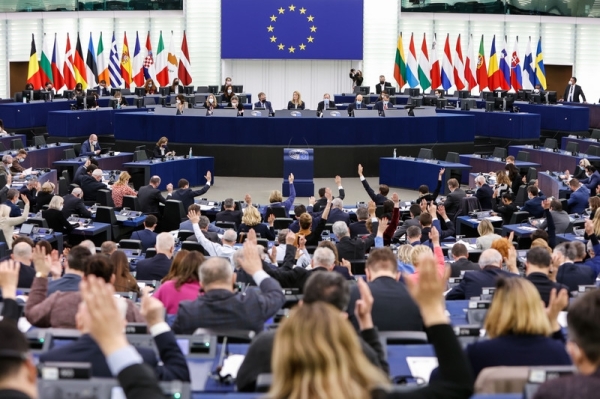EU Parliament to agree fledgling ethics body
EU lawmakers are expected to agree on the creation of a new ethics body, despite major reservations about the weakness of its mandate.
EUobserver understands that the draft agreement will go to the European Parliament’s leaders, known as the Conference of Presidents, which includes parliament president Roberta Metsola and the leaders of the political groups, on Thursday (14 March).
Although most MEPs are highly critical of the fact that the new institution will not have investigative or sanctioning powers, they are likely to support its creation and hope to strengthen its budget and mandate in the coming years.
Following a lengthy dispute with national governments, who have argued that their national diplomats and politicians can only be subject to domestic ethics laws, rather than EU rules, the likely compromise will cover members of the EU institutions, including commissioners, MEPs, and the EU’s foreign policy chief, but not diplomats.
The new office’s budget is also set to be limited. The EU commission initially proposed an €800,000 budget with a skeleton staff of around six people, though the agreement tomorrow is unlikely to set actual numbers on budget size or staff.
Negotiations between MEPs and ministers stretched late into Tuesday night and were followed by a lengthy meeting among EU diplomats on Wednesday.
"Nothing about this ethics body is truly independent: this proposal once more leaves policing to the EU institutions themselves," Shari Hinds, a policy officer at Transparency International, an NGO, told EUobserver.
"With neither the power nor the mandate to sanction or investigate wrongdoing, this proposed ethics body will simply fail to clean up the ethics systems in the EU institutions," she added.
Though the ethics body’s mandate falls well short of that which was demanded by MEPs in the wake of the Qatargate scandal, it does allow lawmakers to say that they beefed up the bloc’s transparency regime in the wake of the ‘cash for influence’ scandal.
The Qatargate corruption scandal saw a handful of MEPs arrested by the Belgian police starting in December 2022, including parliament vice-president Eva Kaili, and the seizure of €1.5m in cash.
Kaili and others face allegations that they took cash from Qatar, Morocco and Mauritania in exchange for political support in whitewashing their record on human rights.
Last year, MEPs reformed their own internal rules of procedure to prevent special interest groups from hosting events on the parliament’s premises, a six-month ban on former MEPs lobbying their old colleagues, and requirements for MEPs to record any gifts received or side incomes above €5,000 per year.

